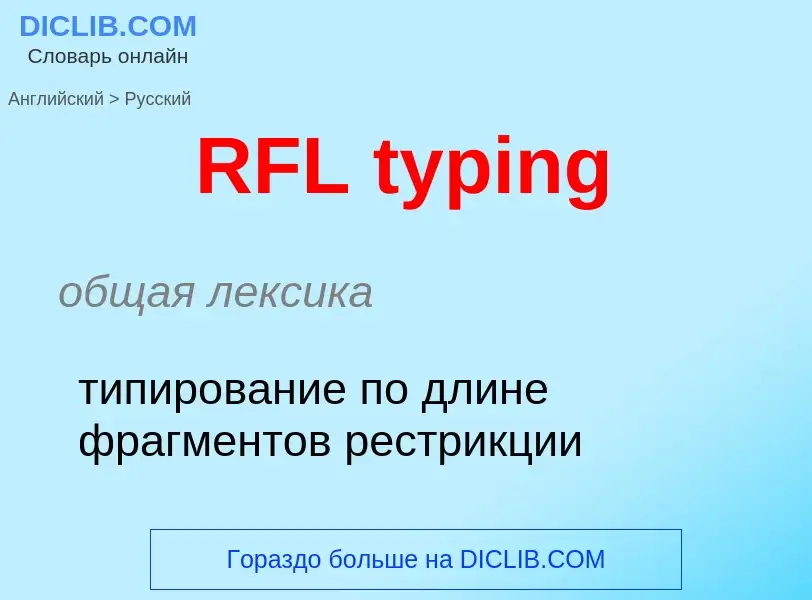Übersetzung und Analyse von Wörtern durch künstliche Intelligenz ChatGPT
Auf dieser Seite erhalten Sie eine detaillierte Analyse eines Wortes oder einer Phrase mithilfe der besten heute verfügbaren Technologie der künstlichen Intelligenz:
- wie das Wort verwendet wird
- Häufigkeit der Nutzung
- es wird häufiger in mündlicher oder schriftlicher Rede verwendet
- Wortübersetzungsoptionen
- Anwendungsbeispiele (mehrere Phrasen mit Übersetzung)
- Etymologie
RFL typing - Übersetzung nach russisch
общая лексика
типирование по длине фрагментов рестрикции
общая лексика
язык с контролем типов, типизированный язык
вычислительная техника
язык символический
Смотрите также
Definition
Wikipedia
In computer science, a type system is a nominal or nominative type system (or name-based type system) if compatibility and equivalence of data types is determined by explicit declarations and/or the name of the types. Nominal systems are used to determine if types are equivalent, as well as if a type is a subtype of another. Nominal type systems contrast with structural systems, where comparisons are based on the structure of the types in question and do not require explicit declarations.

